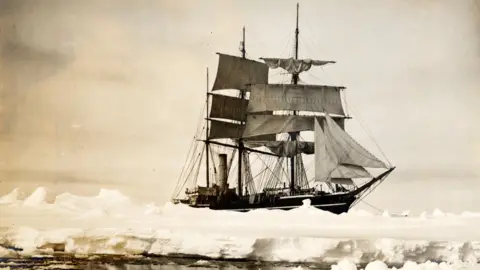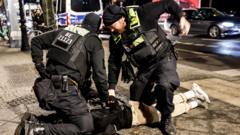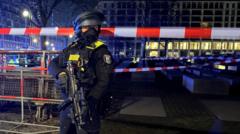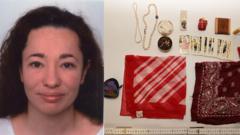On March 29, 1974, Kukuczka, a firefighter and father of three, entered the Polish embassy in East Berlin with a briefcase claiming to hold a bomb. Granted an exit visa by Stasi officers, he was given West German currency and escorted to Friedrichstrasse station. Despite successfully passing several border checks, Kukuczka was shot before reaching the station's western section. Witnessed by a group of schoolchildren from West Germany, one testified seeing Kukuczka killed before the area was sealed off by uniformed officials.
Historians later uncovered destroyed case documents, using technology to reconstruct shredded files linking Naumann to the murder. His widow received his ashes weeks after his death, with no official clarification provided on his demise. The trial was initiated following Poland's 2021 European arrest warrant for Naumann. This case holds significant historical weight in Germany, paralleling post-Holocaust justice proceedings. While Martin Manfred N has consistently proclaimed his innocence, his defense argues the absence of direct evidence proving his involvement. The case highlights the East-West divisions during the Cold War when East Germany existed as a Soviet-aligned state, opposed to the democratic West Germany established from Zones occupied by Allied powers. After 1991’s reunification, these historical trials continue to resonate with Germany's path toward acknowledging its divided past.
Historians later uncovered destroyed case documents, using technology to reconstruct shredded files linking Naumann to the murder. His widow received his ashes weeks after his death, with no official clarification provided on his demise. The trial was initiated following Poland's 2021 European arrest warrant for Naumann. This case holds significant historical weight in Germany, paralleling post-Holocaust justice proceedings. While Martin Manfred N has consistently proclaimed his innocence, his defense argues the absence of direct evidence proving his involvement. The case highlights the East-West divisions during the Cold War when East Germany existed as a Soviet-aligned state, opposed to the democratic West Germany established from Zones occupied by Allied powers. After 1991’s reunification, these historical trials continue to resonate with Germany's path toward acknowledging its divided past.























